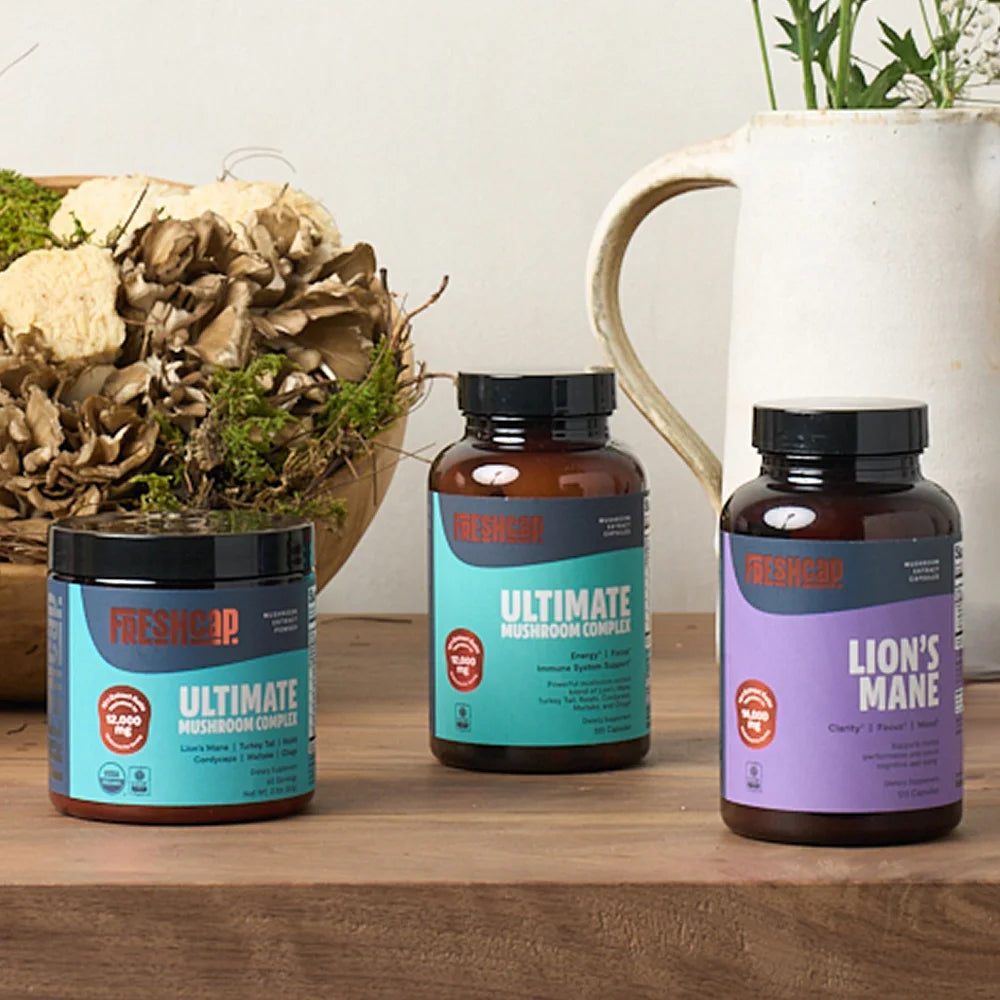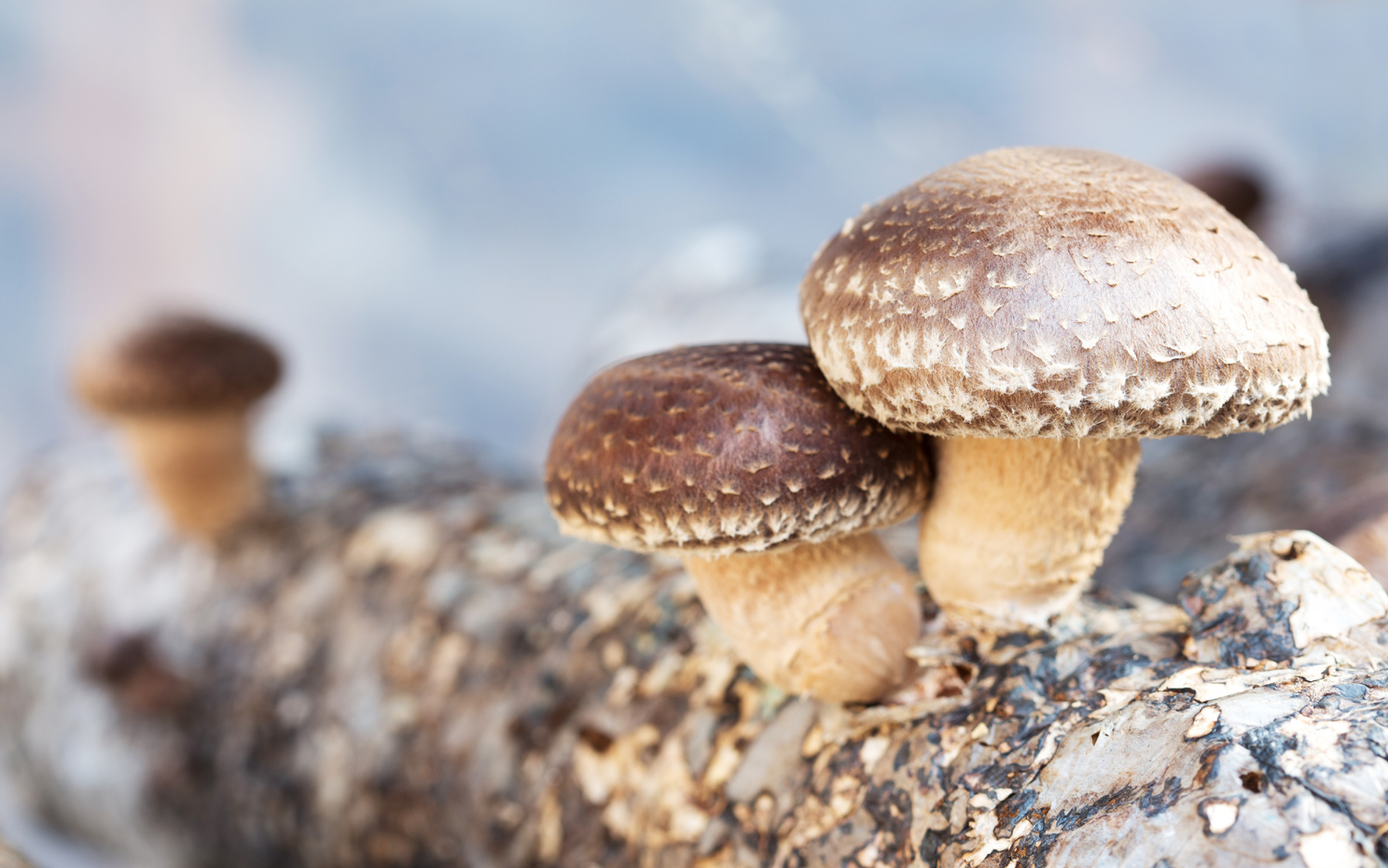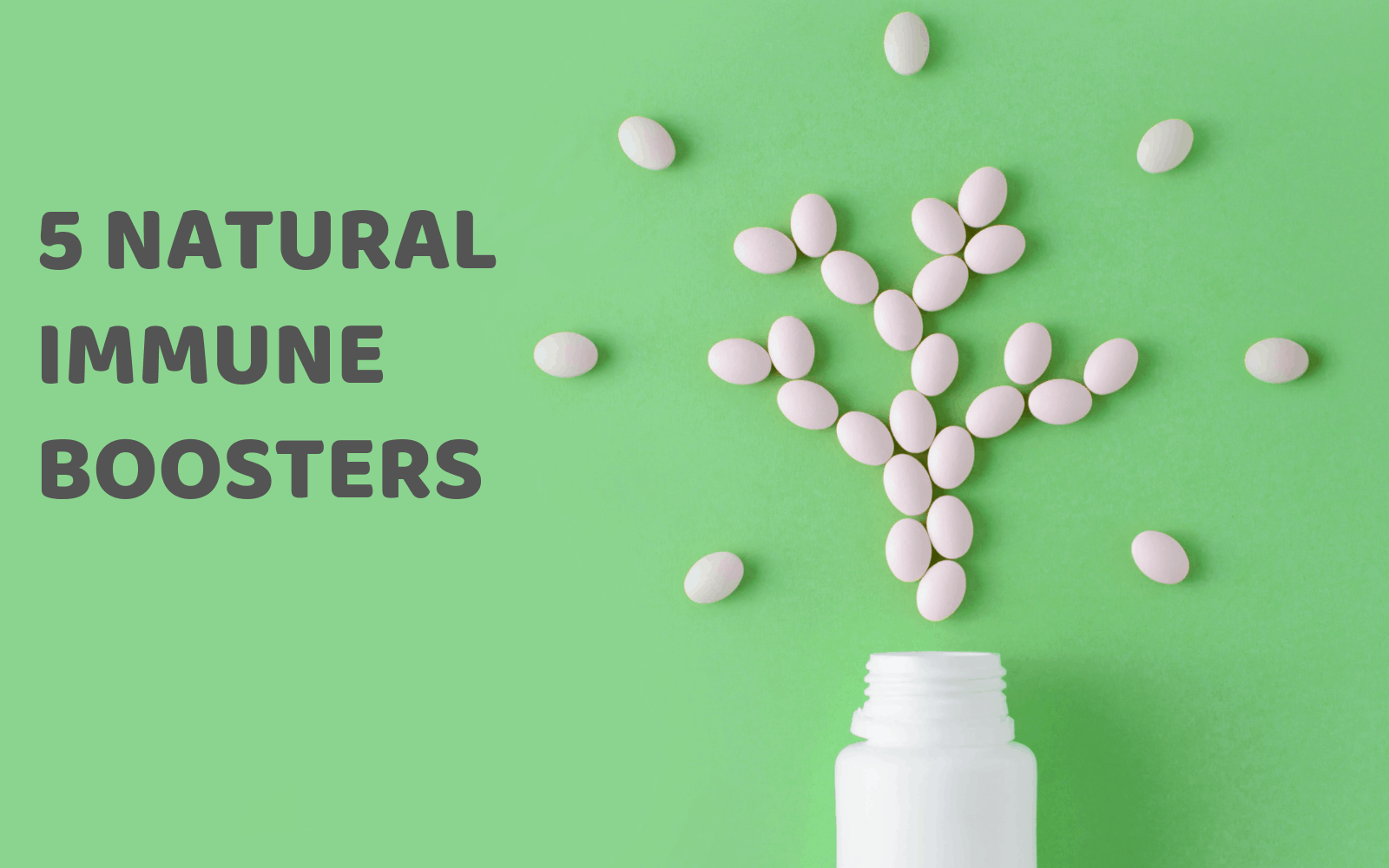Growing up, you probably weren’t exactly keen on mushrooms. Squishy brown fungus? No thanks, mom!
Most adults looking to reduce or eliminate meat from their diet turn to mushrooms like shiitake. While they don’t contain a hefty dose of protein, they aren’t completely void of it either. Plus, they add a savory taste that’s perfect for mimicking the flavor of beef.
Not only do mushrooms like shiitake taste great, but they also provide medicinal properties for supporting different bodily functions. Modern western science has only recently started to catch up with studies to document the benefits.
Let’s take a look at the health benefits of shiitake mushrooms and everything else you need to know about adding them to your diet or consuming them in supplement form.

What are Shiitake Mushrooms?
Shiitake mushrooms (scientific name Lentinula edodes) grow naturally throughout East Asia in countries like China, Korea, Thailand, Japan, and Vietnam. Travel to one of these places and you’ll find shiitakes as a staple ingredient in pho, miso soup, and vegetarian stir-fries. Traditional Chinese and Japanese medicines have taken advantage of the health benefits of shiitake for centuries as a remedy for reducing mucous and supporting blood flow. Although most shiitake mushrooms are still grown in Japan, many farms large and small grow Shiitake throughout North America. In their natural habitat, you may find shiitakes growing on fallen hardwood trees.Nutritional Benefits of Shiitake Mushrooms
Most of the health benefits of shiitake mushrooms come from their extensive nutritional profile. Since they’re low in calories and contain similar amino acids to red meat, shiitakes make an excellent substitute for meat – especially when combined with other veggie protein sources. (1) In addition to fiber, shiitake mushrooms provide nice doses of vital minerals that aren’t easy to find in other food sources. Four shiitake mushrooms will give you 39% of your daily recommended amount of copper, 33% of your recommended B5, and 10% of your suggested selenium. If shiitake mushrooms are grown under special UV lights, they’ll also provide a nice dose of vitamin D – which is virtually impossible to find in food sources. To top it off, shiitakes also contain special compounds studied for their role in supporting the immune system and defending against cancer: lipids, sterols, terpenoids, and polysaccharides. (2)How Can You Take Shiitake?
To enjoy the health benefits of shiitake through your diet, you can purchase either dried or fresh shiitake mushrooms. The dried varieties tend to be more savory than fresh, although can be a bit leathery. You can also consume shiitake mushrooms as a supplement in capsule or powder form. You could add the powder to teas and smoothies or even use it to create broth for soups. Most people consume the equivalent of three to eight shiitake mushrooms each day through supplements, which is generally safe without any side effects. As with any supplement, it might makes sense to first talk to your doctor or health practitioner about an appropriate use and dosage.The Top Health Benefits of Shiitake
Shiitake mushrooms aren’t just a tasty addition to your soups and stir-fries. There are also several health benefits of shiitake you can enjoy from adding them to your diet or consuming them as a supplement. Remember that western research into medicinal mushrooms is in its infancy. Here’s what science tells us about the benefits right now.1. Activates the Immune System
When it comes to activating the immune system, the modest shiitake mushroom is pretty powerful. That’s why folks with autoimmune disorders might want to be careful when consuming shiitakes: they can cause symptoms to flare up. Research shows that the polysaccharides in shiitake may support the immune system to help it fend off disease and illness. (3) Not only that, but much of the immune-boosting support in shiitakes comes from their nice dose of zinc. Zinc helps the body fight infections and oxidative stress while warding away age-related diseases. (4)2. Supports Heart Health
According to the Centers for Disease Control and Prevention (CDC), almost 30% of all Americans suffer from high blood pressure. (5) Chronic high blood pressure is dangerous because it can lead to stroke, heart attacks, and even aneurysms. Studies done on rats show significant promise for using shiitake mushroom to reduce blood pressure. Rats who consumed 5% shiitake powder with water for nine weeks displayed lower blood pressure and cholesterol. (6)3. Fights Cancerous Cells
Are shiitake mushrooms a miracle cure for cancer? Absolutely not. Do they have specific qualities that can defend against cancer and reduce the size of tumors? Possibly. Studies show that the polysaccharides in shiitake mushrooms have an anti-cancer effect. Their activation of the immune system helps fight cancerous cells, in particular. (6, 7) Shiitake mushrooms also contain a compound called lentinan. Lentinan can slow down the growth of leukemia cells and stop them from spreading. Doctors in China and Japan prescribe injectable lentinan as part of a broader cancer treatment to boost the immune system in patients with stomach cancer. (8, 9)4. Provides Natural Energy
Several health benefits of shiitake mushrooms stem from their hefty dose of B vitamins. Vitamin B3, otherwise known as niacin, plays a crucial role in supporting energy production and overall wellbeing. Without niacin, your body couldn’t convert food into enough energy to make it through the day. This B vitamin also supports healthy cell growth and turnover. Every cell in your body requires niacin and since it’s water soluble, your cells don’t store it to use later. That’s why it’s so important to consume enough niacin on a daily basis.5. Supports Healthy Skin and Hair
You’ve probably seen all the Pantene hair commercials touting the benefits of vitamin B5, also known as pantothenic acid. Like niacin, every cell in the body needs B5 to process protein and carbohydrates into usable energy. B5 also plays an important role in supporting hair and skin health. Although consuming B5 or applying it to the scalp won’t make hair start growing again, it can stop hair from thinning. (10)6. Decreases Inflammation
Inflammation causes problems across all parts of the body. Acne, joint pain, depression, weight gain, anxiety, fatigue, and gut problems are all linked with chronic inflammation. (11) High-fat, high-sugar, high-sodium, and heavily processed foods all contribute to widespread chronic inflammation but anti-inflammatory fruits and veggies can help your body fight back. Research shows that the compounds in shiitake mushrooms can reduce inflammation. (12) Some studies suggest that shiitake mushrooms fight inflammation by supporting the immune system and the body’s response to inflammation. (13)7. Lowers Cholesterol
The special substances in shiitake mushrooms – polysaccharides, lipids, sterols, and terpenoids – are all believed to give the medicinal mushroom its power to lower cholesterol. (12) Not only that, but shiitake mushrooms also contain two other special enzymes called eritadenine and beta-glucans. Beta-glucans are a special fiber known to lower cholesterol. (13) Eritadenine acts on a specific enzyme responsible for producing cholesterol by slowing it down. (14) Studies have looked at shiitake mushrooms for their ability to fight cholesterol in rats. (15) Researchers found that rats who consumed shiitake mushroom daily had less fat in their livers and lower cholesterol levels overall.Potential Side Effects and Interactions
Shiitake mushrooms are generally very safe when consumed in average food amounts: About three to eight mushrooms per day. High amounts of shiitake may produce more drastic health benefits, but they can also increase your risk of potential side effects. Shiitake mushrooms are powerful. Consuming large quantities can increase your white blood cell count and make your skin more sensitive to sun exposure. Although this condition is rare, eating raw shiitakes can trigger an allergic reaction called “shiitake dermatitis” which is essentially an itchy rash all over the body. You can avoid shiitake dermatitis by only consuming cooked shiitakes. Only about 2% of people who consume raw shiitakes will develop this condition and it subsides after about 24 hours. (15) Shiitake mushrooms have no known interactions with other supplements or prescription medications.Who Shouldn’t Take Shiitake Mushrooms?
Anyone with autoimmune disorders might consider avoiding shiitake mushrooms due to their powerful effect on the immune system, which could exasperate symptoms of conditions like lupus or multiple sclerosis. Likewise, anyone with an already high white blood cell count or eosinophilia should avoid consuming shiitakes. Studies have not identified the safety of shiitake mushrooms in extremely high medicinal quantities for pregnant or breastfeeding women. However, cooked mushrooms should be absolutely safe to consume in average quantities, provided they’re properly washed and prepared.




